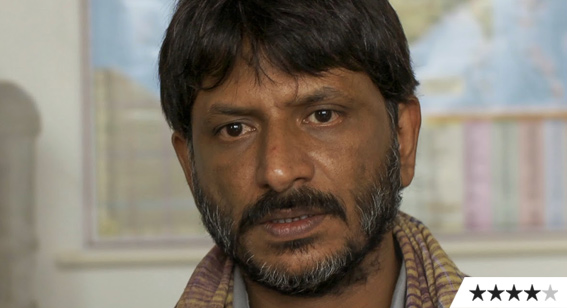Review: Siddharth

This year has given Western audiences diverse experiences based on Indian culture, from easy heart-warming fluff (The Hundred-Foot Journey) to medium-level thought-provoking crowd-pleasers (The Lunchbox). Well prepare yourself for Hard Mode, because Siddharth confronts a dark and depressing reality that will likely – and unfortunately – turn off fans of those previous two broadly-appealing films.
The story follows guilt-ridden and economically-crippled father Mahendra, who sent off his only son to perform child labour. Now that boy’s missing, feared abducted by child slavers, but what proves to be more terrifying is the socially-acceptable apathy that surrounds the desperate dad. A scene early on sees Mahendra file a missing person’s report to the police, only to be met with annoyance by the officer on duty who has seen this child-labour-turned-abduction case too many times before. As weeks pass, the panic Mahendra attempts to hold back penetrates slowly, superbly displayed by Rajest Tailang who touches the brink of physical and emotional exhaustion in the role.
The dialogue (at least the subtitled English translation) can be too on-the-nose in numerous scenes, but the elegant craft demonstrated by director Richie Mehta eclipses such quarrels. The documentary-mimicking camerawork seeps the film in disturbing authenticity while the best parts of the score are subtle yet sombre, working in tandem with the film’s overall mood. The pace may feel slow, but it’s to the film’s intention. By the end, it feels like you’re the only one who helped carry Mahendra’s horrifying burden in a heavily-populated country.















